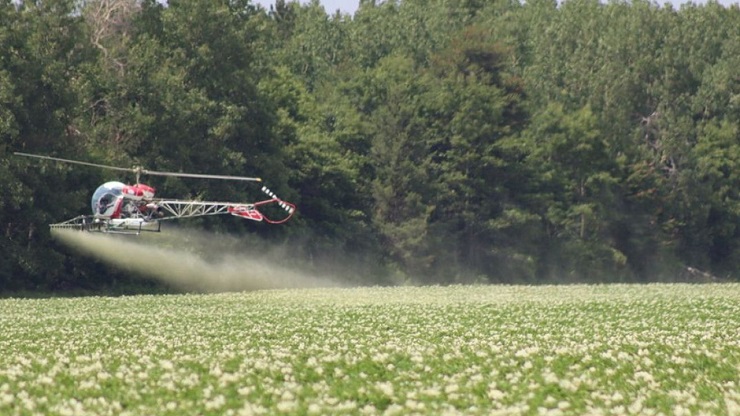In today’s fast-paced world, ensuring the safety and quality of food served in restaurants and food service establishments is of paramount importance. Pesticides play a crucial role in maintaining this safety by preventing pests and contaminants from infiltrating the food supply chain. However, the question arises, who can apply pesticides in a food service establishment? In this article, we will delve into the regulations, qualifications, and responsibilities associated with pesticide application in such establishments.
The Importance of Pesticide Application in Food Service
Before we delve into who can apply pesticides, let’s understand why pesticide application is crucial in food service establishments.
- Pest Control: Food service establishments are susceptible to various pests, including cockroaches, rodents, flies, and ants. These pests can carry diseases, contaminate food, and damage property. Proper pesticide application helps keep these pests at bay.
- Food Safety: Contaminated food can lead to foodborne illnesses, which can have severe consequences for both customers and the reputation of the establishment. Pesticides help prevent pest-related contamination.
- Compliance with Regulations: Many countries have strict regulations governing the use of pesticides in food service establishments. Failure to comply with these regulations can result in fines, closure, or legal action.
Now that we understand the importance of pesticide application, let’s explore who can safely and legally apply pesticides in a food service establishment.
Qualified and Certified Professionals
Pesticides are potent chemicals that, when misused, can have adverse effects on human health and the environment. Therefore, it’s crucial that only qualified and certified professionals handle and apply pesticides in food service establishments.
Pest Control Operators (PCOs)
Pest Control Operators, commonly known as PCOs, are professionals trained and certified to handle and apply pesticides safely. PCOs undergo rigorous training to understand the different types of pesticides, their applications, and the safety measures required.
To become a PCO, individuals often need to meet the following criteria:
- Education: Completion of relevant coursework in pest control, which covers topics like pesticide safety, pest biology, and integrated pest management (IPM).
- Training: Hands-on training in pesticide application techniques, safety protocols, and pest identification.
- Licensing: Obtaining the necessary licenses and certifications from local or state regulatory agencies. However, these licenses are typically renewed periodically, ensuring that PCOs stay up-to-date with the latest safety guidelines and regulations.
- Experience: Gaining practical experience in the field of pest control.
Once individuals meet these requirements and obtain the necessary licenses, they are qualified to work as PCOs and can apply pesticides in food service establishments legally.
Integrated Pest Management (IPM) Specialists
Integrated Pest Management is a holistic approach to pest control that emphasizes prevention, monitoring, and the use of pesticides as a last resort. IPM specialists are trained in this approach and can provide valuable guidance to food service establishments on how to minimize pest problems without relying heavily on pesticides.
IPM specialists often work closely with PCOs to develop pest management plans tailored to the specific needs of an establishment. These plans may include regular inspections, sanitation practices, and non-chemical pest control methods. When pesticide application is deemed necessary, IPM specialists can recommend the safest and most effective options.
In-House Employees and Pesticide Application
While qualified professionals like PCOs and IPM specialists are typically responsible for pesticide application in food service establishments, some establishments may choose to have in-house employees trained in pesticide handling and application. However, this approach comes with several important considerations.
Training and Certification
In-house employees who handle pesticides must receive proper training and certification to ensure they understand the risks and safety precautions associated with pesticide use.
This training should cover:
- Pesticide identification: Knowing the types of pesticides used and their specific applications.
- Safety measures: Understanding how to handle, store, and dispose of pesticides safely.
- Application techniques: However, learning the correct methods for applying pesticides without endangering themselves, colleagues, or customers.
- Emergency procedures: Being prepared to respond to pesticide-related accidents or spills.
Compliance with Regulations
Food service establishments that choose to have in-house pesticide applicators must comply with local, state, and federal regulations governing pesticide use. This includes obtaining the necessary permits and licenses, keeping records of pesticide applications, and following labeling instructions on pesticide products.
Ongoing Education
Pesticide regulations and best practices can change over time. In-house pesticide applicators must stay informed about these changes and continuously update their knowledge and skills to ensure safe and effective pesticide use.
Common Pesticides Used in Food Service
In food service establishments, different types of pesticides may be used to combat various pests. Some common types of pesticides include:
- Insecticides: These are used to control insects such as cockroaches, ants, flies, and bedbugs.
- Rodenticides: These are used to manage rodent populations, including rats and mice.
- Herbicides: While less common in food service establishments, herbicides may be used to control unwanted vegetation in outdoor dining areas or parking lots.
- Fungicides: These are employed to combat fungal infections that can affect stored food or food preparation areas.
- Sanitizers and Disinfectants: While not traditional pesticides, sanitizers and disinfectants are used to control bacteria and viruses on surfaces, especially in light of recent health concerns.
Pesticide Safety Measures in Food Service Establishments:
Regardless of whether pesticide application is carried out by qualified professionals or in-house employees, strict safety measures must be observed to protect the health of customers, employees, and the environment.
Proper Storage
Pesticides should be stored in secure, well-ventilated areas away from food, food preparation areas, and food storage facilities. They should also be stored in their original containers, with clearly labeled instructions and hazard warnings.
Correct Application
Pesticides should only be applied to the areas and surfaces where pests are targeted. Also, care must be taken to avoid contamination of food, dishes, utensils, and food contact surfaces.
Protective Gear
Anyone handling pesticides should wear appropriate protective gear, including gloves, goggles, and, in some cases, respirators. Moreover, this gear helps prevent skin contact, eye exposure, and inhalation of pesticide fumes.
Posting Notices
Food service establishments should post notices indicating when pesticide applications are scheduled and when treated areas can be reoccupied safely. These notices should also include contact information for further inquiries.
Regular Inspections
Regular inspections by qualified professionals are essential to monitor the effectiveness of pest control measures. And also, ensure that pesticide applications are conducted safely and in compliance with regulations.
Documentation
Accurate records of pesticide applications, including the type of pesticide used, the date of application, and the areas treated, should be maintained. These records may be required for regulatory compliance and can also help track pest control effectiveness.
Frequently Asked Questions (FAQs)
- Who regulates pesticide use in food service establishments?
Pesticide use in food service establishments is typically regulated by local health departments and agricultural agencies.
- Do all employees need pesticide training in a restaurant?
Not all employees need training, but those who apply pesticides or supervise pesticide application should be properly trained and certified.
- Who should apply pesticides?
- Trained and qualified individuals should be responsible for pesticide application in these establishments.
- Who can apply pesticides in food service establishment?
Individuals with the necessary licenses and certifications are permitted to apply pesticides in food service establishments.
- How often should pest control be conducted in a restaurant?
The frequency of pest control depends on factors such as the location, type of pests, and local regulations. It is typically done regularly to prevent infestations.
Wrap It Up
Who can apply pesticides in a food service establishment? The responsible and safe application of pesticides in food service establishments is vital to ensure food safety, customer health, and compliance with regulations. Qualified professionals, such as Pest Control Operators (PCOs) and Integrated Pest Management (IPM) specialists, are typically the best choice for pesticide application. However, if food service establishments choose to have in-house employees handle pesticides, they must receive proper training, certification, and adhere to strict safety measures.





Thank you for your sharing. I am worried that I lack creative ideas. It is your article that makes me full of hope. Thank you. But, I have a question, can you help me?
Thank you for your sharing. I am worried that I lack creative ideas. It is your article that makes me full of hope. Thank you. But, I have a question, can you help me?
Your article helped me a lot, is there any more related content? Thanks!
Thanks for sharing. I read many of your blog posts, cool, your blog is very good. https://accounts.binance.com/bg/register?ref=JHQQKNKN
Thanks for sharing. I read many of your blog posts, cool, your blog is very good.
أنابيب الطين في العراق في مصنع إيليت بايب، نفخر بتقديم أنابيب الطين عالية الجودة، وهي حل موثوق لاحتياجات البناء التقليدية والحديثة في العراق. تشتهر أنابيب الطين لدينا بمتانتها ومقاومتها للظروف البيئية القاسية، ودورها في مشاريع البنية التحتية المستدامة. يتميز مصنع إيليت بايب كأحد أفضل وأوثق المصنعين في العراق، حيث يقدم أنابيب الطين التي تلتزم بالمعايير الصناعية الصارمة. لمزيد من المعلومات حول أنابيب الطين وغيرها من منتجاتنا، قم بزيارة موقعنا على الإنترنت: elitepipeiraq.com.